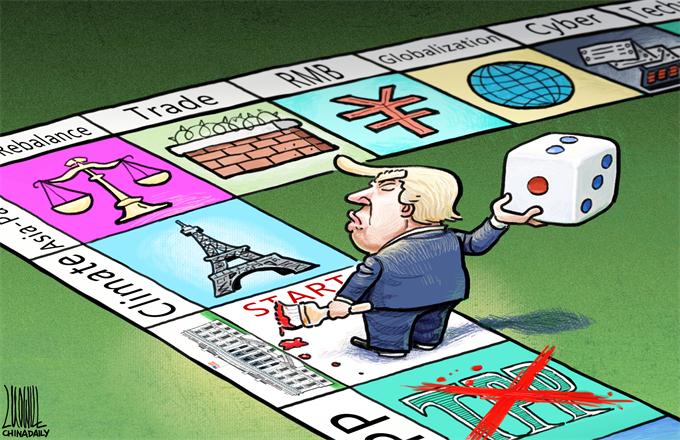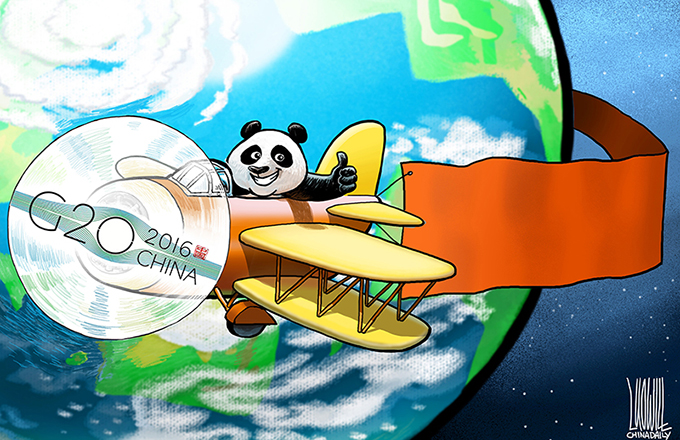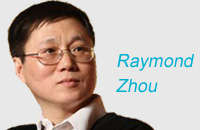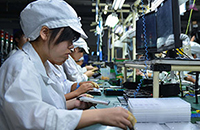The West must "play by the WTO rules" and abandon surrogate country system
On November 14, 1999, China and the US signed a historic trade deal that paved the way for China to join the WTO. The following day US President Bill Clinton said, “The China-WTO agreement is good for the United States, it’s good for China, it’s good for the world economy.” In Summary of US-China Bilateral WTO Agreement, November 16, 1999, the US made clear a very important point: “The US and China have agreed that we will be able to maintain our current antidumping methodology (treating China as a non-market economy) in future anti-dumping cases without risk of legal challenge. This provision will remain in force for 15 years after China’s accession to the WTO.”
Fifteen years have passed and the West must “play by the rules” and end its surrogate country system or risk damaging the world trading system.
If the West violates China’s legal rights, it risks sapping the credibility and legitimacy of the world trading system. International institutions work only if member countries believe they work. China became a member of the WTO on December 11, 2001, and the world has benefited greatly from China’s reforms and will continue to benefit from future reforms. But China also has legal rights that should be upheld by all WTO members. In the Accession of the People’s Republic of China, Article 15(d) states: “In any event, the provisions of subparagraph (a)(ii) shall expire 15 years after the date of accession.” The meaning of the text is clear and simple. After December 11, 2016, members are not allowed to treat China as a nonmarket economy for the purposes of calculating antidumping duties. China’s Ministry of Commerce has said that members need to abide by the Article and change their antidumping methodology or China will take “necessary measures” to defend its legal rights.
The Western argument that ending the surrogate country system is a domestic law issue rather than an international law issue is flawed. In the US, the flawed argument is based on the Tariff Act of 1930. The US argues that Paragraph (18)(B) of the Tariff Act of 1930 requires the Commerce Department to consider six factors in determining whether or not to treat a country as a nonmarket economy for the purposes of calculating antidumping duties. First, the paragraph does not say anything about “for the purposes of calculating antidumping duties.” Second, the US and China “agreed” that “in any event” China would be “treated” as a market economy after 15 years from the date of its accession. Designating China as a market economy and treating China as a market economy for the purposes of calculating antidumping duties are two separate issues and should not be mixed.
To better understand China’s position, People’s Daily Online interviewed Mei Xinyu, a research fellow with the Research Academy under the Chinese Ministry of Commerce. Mei said it is up to the US and Europe if they want to recognize China as a market economy but as signatories to the WTO’s Accession of the People’s Republic of China, they are obligated to fulfill their international commitments. The US, Europe, and other WTO members must stop using the country surrogate system in anti-dumping investigations against Chinese exports as scheduled at the time of China’s entry into the organization 15 years ago, and instead use Chinese domestic prices and costs as the basis for adjudication.
The world trading system works only if members “play by the rules.” On March 9, 2000, Former President Bill Clinton gave a speech at Johns Hopkins University on the US-China Relations Act of 2000. At the speech, Clinton brought up an argument made by his opponents: China will just break its promises; we cannot trust the Chinese to abide by WTO rules and binding dispute settlements. He responded to the criticism by saying, “Well, any of you who follow these WTO matters know that China is not the only person that could be accused of not honoring the rules-making process.” He was referring to the trade war between America and Europe over bananas and beef, which tested the world trading system. Now, the world trading system is being tested again, but this time the West is being tested and China is waiting to see if the West is willing to uphold the rules.





















